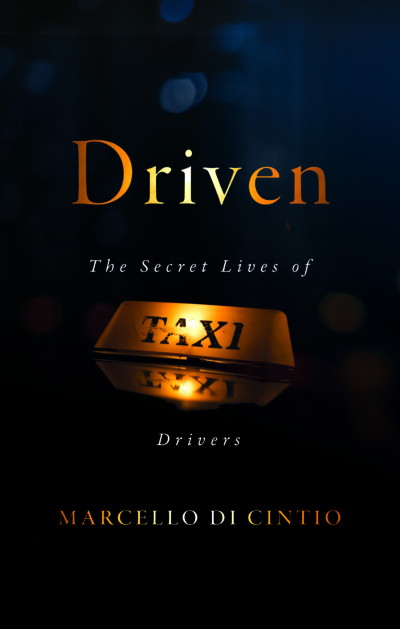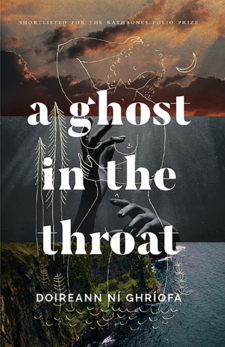Description
Shortlisted for the Bressani Literary Prize • A Globe and Mail Book of the Year • A CBC Books Best Canadian Nonfiction of 2021
In conversations with drivers ranging from veterans of foreign wars to Indigenous women protecting one another, Di Cintio explores the borderland of the North American taxi.
“The taxi,” writes Marcello Di Cintio, “is a border.” Occupying the space between public and private, a cab brings together people who might otherwise never have met—yet most of us sit in the back and stare at our phones. Nowhere else do people occupy such intimate quarters and share so little. In a series of interviews with drivers, their backgrounds ranging from the Iraqi National Guard, to the Westboro Baptist Church, to an arranged marriage that left one woman stranded in a foreign country with nothing but a suitcase, Driven seeks out those missed conversations, revealing the unknown stories that surround us.
Travelling across borders of all kinds, from battlefields and occupied lands to midnight fares and Tim Hortons parking lots, Di Cintio chronicles the many journeys each driver made merely for the privilege to turn on their rooflight. Yet these lives aren’t defined by tragedy or frustration but by ingenuity and generosity, hope and indomitable hard work. From night school and sixteen-hour shifts to schemes for athletic careers and the secret Shakespeare of Dylan’s lyrics, Di Cintio’s subjects share the passions and triumphs that drive them.
Like the people encountered in its pages, Driven is an unexpected delight, and that most wondrous of all things: a book that will change the way you see the world around you. A paean to the power of personality and perseverance, it’s a compassionate and joyful tribute to the men and women who take us where we want to go.
Praise for Driven
“No big event kicks Driven into gear. Nobody is a celebrity. There is no specific wrong to be righted, no particular injustice to be exposed. Indeed, Di Cintio consciously abjures the best-known tropes of cab driving … Instead, he sticks to wanting to know about cab drivers, and this impulse—plain, old-fashioned inquisitiveness—is a journalistic force not to be underestimated … It takes up a subject so ordinary that you hardly notice it, but it becomes more interesting the closer you look. In fact, the closer you look, the more your view is not of a single subject at all but of an entire world.”—Literary Review of Canada
“A blend of reportage, social history, and personal profile, Driven is a triumph of curiosity and compassion.”—The Walrus
“In Driven: The Secret Lives of Taxi Drivers, Marcello Di Cintio takes the time and trouble to engage with a cross-Canada range of people representing a profession too often taken for granted. Most of them are immigrants; all of them are subject to scarcely conceivable challenges and obstacles, often exacerbated by the onset of Uber.”—Montreal Gazette
“Driven is a collection of short essays laying out the backstory for an eclectic array of immigrant cabbies … All of the characters are driven by an incredible work ethic, where 17-hour days are not uncommon … If you have spent any time at all in cabs, chances are you will have met some of the character types in this easy-reading collection.”—Winnipeg Free Press
“A varied, eclectic collection of stories from the frontlines of North America’s taxi industry, showcasing the indomitable hope of the people who literally keep our cities moving forward.”—Maclean’s
“A masterpiece of original sociological research, Driven: The Secret Lives of Taxi Drivers is an extraordinary and deftly presented series of perspectives. Unique, engaging, entertaining, inherently fascinating, thoughtful and thought-provoking.”—Midwest Book Review
“Alongside Di Cintio we discover the magic behind these people and their stories, painting a picture of the often turbulent lives of these blue collar workers that are so often forgotten by society … Di Cintio’s journalism skills are clearly evident in the rich descriptions and conversations he relays in these pages, but what makes his writing even better are the small asides he offers us when making personal observations about people, or poking fun at himself … I was happily engaged from beginning to end.”—I’ve Read This
“Driven is an engaging, impeccably investigated, character-driven work of narrative nonfiction, told with Di Cintio’s wonderful dark humour, keen empathy, and rich journalistic eye. The book is a searing testament to the power of untold stories, of people who exist in the margins, of hidden histories, as well as an examination of Canada’s immigration laws. Driven urges us to rethink the enduring toll on those individuals who labour for us and take us where we need to go. A truly fine blend of heart-break, guffaws, and research.”—Lindsay Wong, author of The Woo-Woo and My Summer of Love and Misfortune
“In these deeply researched and richly—often shockingly—detailed portraits of Canadian taxi drivers from all over the world, Di Cintio reveals, among other things, the heavy price exacted by getting here, and staying here. The funny, savage, and poignant stories in these pages give a fresh urgency to an old saying that all of us should remember the next time we get into a taxi: ‘Be kind, for everyone you meet is fighting a hard battle.'”—John Vaillant, author of The Tiger: A True Story of Vengeance and Survival
Praise for Marcello Di Cintio
“Di Cintio researches his subjects thoroughly, conducts in depth reporting, and writes with vigour and humility.”—Kamal Al-Solaylee, Quill & Quire
“Di Cintio weaves together history with a sense of place and infuses character with dialogue and humor … masterful.”—Selma Dabbagh, The Electronic Intifada
“Illuminating reading from a highly engaged author.”—Kirkus Reviews
“An astonishing book about folks from all over, many of whom have been through total hell but have somehow made their way out … You never know who’s driving you. Each person contains multitudes.”—Margaret Atwood on Twitter
“Fascinating … Nuanced … In Driven, Di Cintio stayed in his own country and paid close attention to the men and women most of us take for granted. Most were immigrants. Many came from war-torn nations. Many were what Di Cintio calls ‘chess masters of their own lives,’ possessing a genius and ingenuity that few of us recognize.”—Calgary Herald








